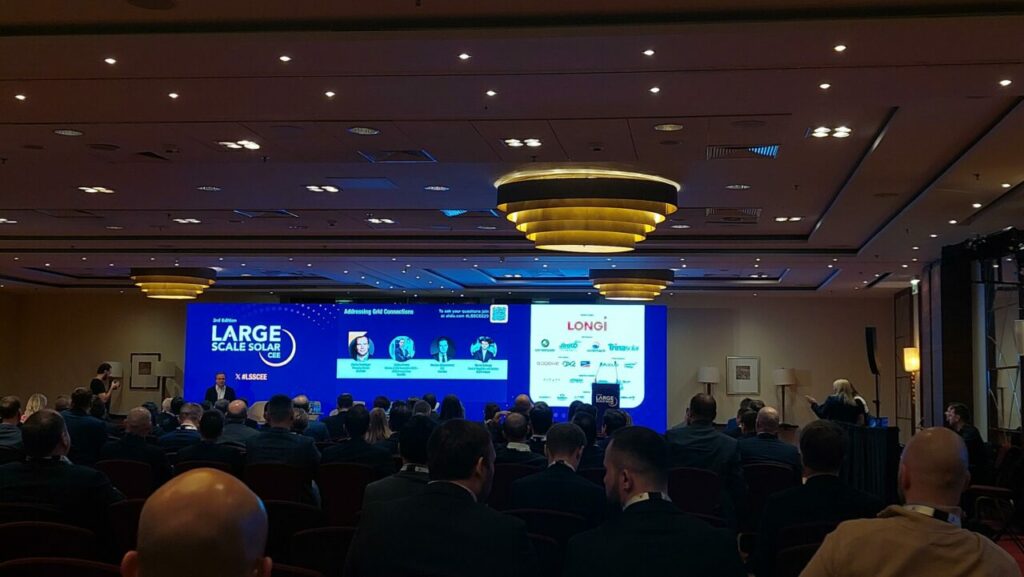
“We need to think about the grid not only from the point of view of energy but as the backbone of the future economy,” said Michaɫ Sobczyk, head of regulation and markets at renewable energy developer EDPR Poland.
Speaking during the ‘Addressing Grid Connections’ panel on the first day of this year’s Large Scale Solar Central Eastern Europe (14 November) event, Sobczyk urged action to modernise the various grids within CEE to enable full decarbonisation.
Sobczyk highlighted two issues within current grid structures in the CEE remit. The first, in the short term, is needing to solve ‘cable-pooling’ issues especially when involving an oversized direct line.
However this issue, in Poland, is set to be remedied within two years thanks to legislation.
The second problem Sobczyk mentioned was increasing grid investment.
“We cannot [transform] the grid in a day, it takes several years,” Sobczyk explained, “So we need to make sure that we take advantage of the ‘low hanging fruit’ in the next few years, whilst also focussing on long-term investment.”
In shifting perspectives for the electric grid, outside of a energy-focus to a future economy focus, Sobczyk believes that grid decarbonisation would be accelerated, allowing for more large scale solar projects to be connected quicker.
As agreed by the panel, grid connection issues is not a nation-exclusive issue, but rather one affecting the majority of Europe, including the UK.
With the UK currently on track to add 1.7GWp-dc of solar photovoltaics (PV) this year, accelerating grid connections will help bolster the UK’s PV capacity even further.
According to head of research at Solar Media, Finlay Colville, the total ground-mount solar pipeline in the UK is higher than 100GW, taken up by projects under construction, but with “tentative grid applications out as far as 2039.
Earlier this week (13 November) Ofgem passed new rules tackling the UK’s grid bottlenecking concerns by granting National Grid ESO power to terminate “phantom” projects blocking the grid connections queue.

